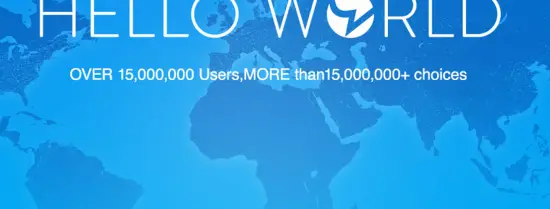Impression Management on Gay Dating Apps in China
The use of gay dating apps in China has grown remarkably in recent years. China's biggest gay dating app Blued has more than 15 million users, surpassing the famous Western equivalent Grindr. Yet cultural factors complicate the use and acceptance of both the lifestyle of homosexuals and their use of this technology. This research examines the use of gay dating apps in urban China and hopes to better understand the factors impacting this use. How do users represent themselves on the app? How do they negotiate between the virtual and the real world? How do dating apps shape their identity, as well as their expectations for intimacy?
China has approximately 30 million male homosexuals. Culturally and socially, Chinese gays are facing with a rather complicated situation. Traditionally, homosexuality is not accepted because all men are expected to get married with women, father children and not to bring shame to their parents, leading to a fact that many homosexuals have chosen to stay in the closet and marry heterosexual women. Nevertheless, as consumer culture rises, homosexuals are more and more represented in popular culture texts, gaining sympathy and support especially from women who fancy homosexual literature, films, and cartoons. Moreover, male homosexuals are newly stereotyped as being good-looking, well-mannered, gentle, considerate, fashionable, etc. By contrast, men’s being arrogant, rude, and sexist are labelled as “straight-man cancer,”which has become a catchword in China. Chinese gays thus are encompassed by both shame and pride, which affect their self-representation in both real life and the virtual community.
The use of gay dating apps in China has grown remarkably in recent years. China’s biggest gay dating app Blued has more than 15 million users, surpassing the Western equivalent Grindr. Sharing some common features with Grindr, Chinese gay dating apps, such as Blued, also have some local characteristics. Like on Twitter, users can be followed by their likers on Blued, with their profiles showing how many “fans” they have. The editors of Blued collect photos from good-looking users and put them on the login interface, encouraging others to upload their authentic photos. User-generated live videos are accessible on Blued, and the audience can interact with performers during the live show.
While there has already been some researches that examine the use of gay dating apps in Western countries, China is overlooked. This research examines the use of gay dating apps in urban China and hopes to better understand the dynamics between structural factors and Chinese gays’ agency. How do users represent themselves on the app? How do they negotiate between the virtual and the real world? How do dating apps shape their identity, as well as their expectations for intimacy?
Research team
Shangwei Wu, MA
PhD Candidate
Prof. dr. Susanne Janssen
Promotor
Dr. Daniel Trottier
Co-promotor
